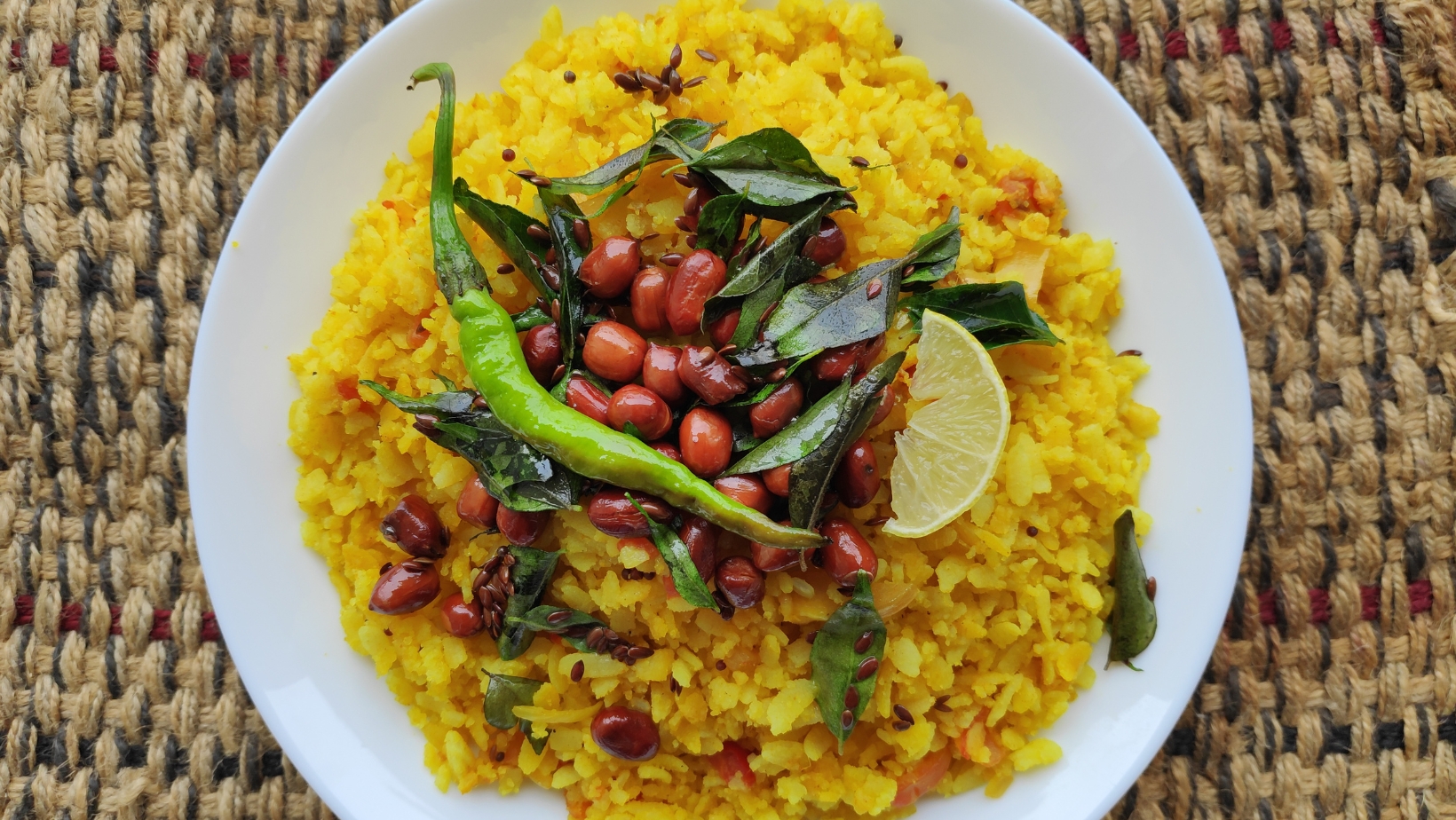When it comes to dieting, finding the right balance between nutritious and satisfying meals can be a challenge. Many people wonder if it’s okay to eat poha at night while following a diet plan. Let’s delve into this question and explore whether poha can be a suitable choice for an evening meal.
Poha, also known as flattened rice, is a popular Indian dish that is light and easy to prepare. It is low in calories and fat, making it a potentially good option for those watching their weight. Additionally, poha is rich in fiber and offers essential vitamins and minerals.
However, whether or not you should consume poha at night while dieting depends on various factors. It’s important to consider your overall calorie intake throughout the day and how well the meal aligns with your dietary goals. While poha itself may not be high in calories, it can be accompanied by ingredients such as potatoes or fried toppings that add extra calories.
While Dieting, Is it Okay to Eat Poha at Night?
When it comes to dieting, many people believe that eating anything at night can hinder their progress. However, the key lies in making smart food choices and being mindful of portion sizes. Poha, a traditional Indian dish made with flattened rice flakes, can be a healthy option for your evening meal if prepared using nutritious ingredients.
Poha is low in calories and fat, making it a light and satisfying choice for those watching their weight. It also contains carbohydrates which provide energy and keep you feeling full for longer periods. Additionally, poha is rich in fiber and various essential nutrients like iron, vitamin B complex, and antioxidants.
To make your poha even healthier while dieting, opt for variations that incorporate vegetables like peas, carrots, or bell peppers. These additions not only enhance the nutritional value but also add flavor and texture to the dish.
It’s important to remember that when following a diet plan or trying to lose weight, overall calorie intake throughout the day matters more than specific foods consumed at particular times. If you enjoy eating poha at night as part of your balanced meal plan within your daily caloric limits, there shouldn’t be any major concerns regarding its consumption during nighttime.
However – and this is crucial – individual dietary needs may vary based on factors such as metabolism rate, activity level, overall health condition, and personal preferences. Consulting with a registered dietitian or nutritionist who can tailor recommendations specifically for you is always recommended before making any significant changes to your diet.

Pros and Cons of Eating Poha at Night
The Impact of Eating Poha at Night on Weight Loss
When it comes to dieting, one question that often arises is whether it’s okay to eat poha at night. Let’s explore the pros and cons of including this popular Indian dish in your nighttime routine.
Poha, also known as flattened rice, is a nutritious option for those looking to shed some pounds. Here are a few potential benefits of eating poha at night:
- Low Calorie Option: Packed with essential nutrients like iron, vitamins, and minerals, poha is relatively low in calories compared to other evening snacks. It can be an excellent choice for individuals aiming to maintain a calorie deficit while dieting.
- Fiber Content: With its high fiber content, poha can help you feel fuller for longer periods. This can prevent late-night hunger pangs and cravings for unhealthy snacks that may hinder your weight loss efforts.
However, there are certain considerations you should keep in mind when incorporating poha into your nighttime diet:
- Carbohydrate Content: While poha is a healthy carbohydrate source, it’s important to be mindful of portion sizes if you’re following a low-carb or keto diet plan. Excessive consumption of carbohydrates before bedtime might interfere with your body’s fat-burning process during sleep.
- Individual Dietary Needs: Every individual has unique dietary needs and preferences based on factors such as metabolism and overall health condition. It’s crucial to consult with a registered dietitian or nutritionist who can provide personalized advice tailored to your specific goals.
While including poha in your nighttime routine may offer certain advantages such as being a low-calorie option and providing satiety due to its fiber content, it’s important to consider factors like carbohydrate intake and individual dietary needs. Ultimately, finding the right balance and moderation in your diet is key to achieving your weight loss goals while enjoying a variety of nutritious foods.
Please note that it’s always recommended to consult with a healthcare professional or registered dietitian before making any significant changes to your diet plan.


 By
By 



